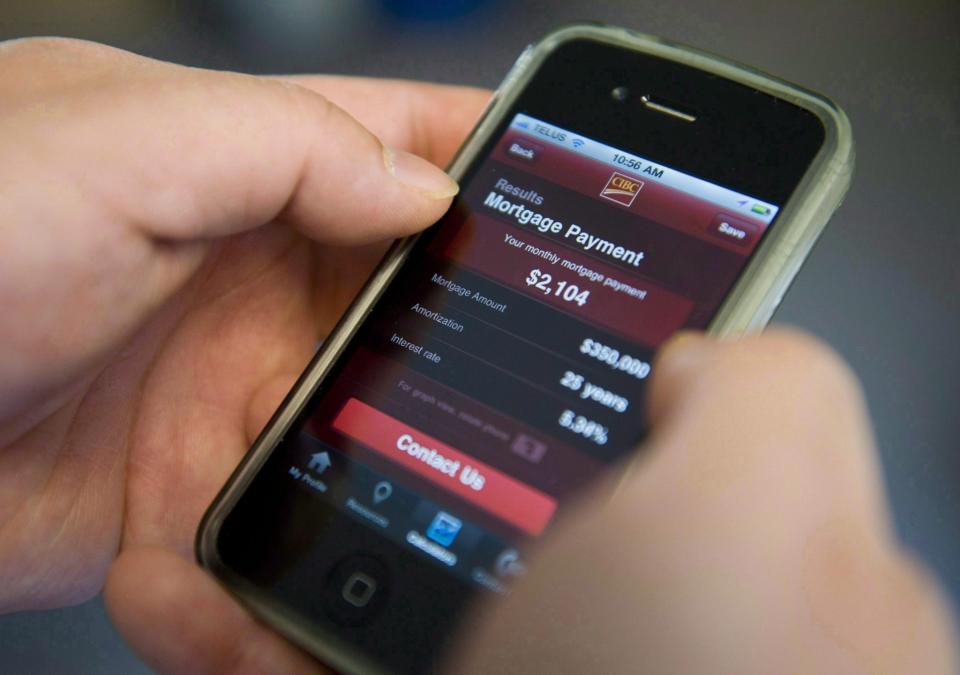Why millennials are more willing to switch banks than their parents

Millennials may have a reputation for being lazy, but when it comes to banking, that certainly isn’t the case.
Research has shown that millennials aren’t afraid to switch banks, but only if they do rigorous research and find a financial institution that works best for them.
“Often times our parents pass down their banks to us,” Alyssa Furtado, co-founder and CEO of financial comparison platform RateHub, tells Yahoo Canada Finance. “I do think that millennials, more than baby boomers, more than their parents, are willing to look around and switch.”
It’s not all bad news for banks, though. A 2016 Digital Scientists report found that although millennials are usually twice as likely to leave their bank, when they find a financial institution that works for them, they are likely to become loyal to that bank.
The big switch is something Furtado says she has done herself, adding that she moved from her parents’ bank, BMO, to TD once she opened her business accounts.
Furtado, however, acknowledges that not all millennials are in the same boat. What holds some back from switching, she says, is the hassle involved, not being aware of how much they can save and not knowing that they don’t need to have all of their financial products at one bank.
For those who do switch financial institutions, the Digital Scientists report found that fees were the most important factor with rates, customer service, online bill payments and mobile banking also being major factors as well.
In Canada, those bank fees can add up. Statistics Canada found that Canadians spend up to $220 per year on bank fees.
To learn which bank accounts offer the best value, there are tools out there for savvy Canadians to find out.
RateHub recently announced the launch of a chequing account comparison tool, which allows users to input how many bank transactions they perform a month and see which bank accounts best meet their needs.
With it, consumers can find out that what may appear to be a good deal might not be as good as it might initially seem.
For example, while banks like PC Financial and Tangerine may offer no-fee chequing accounts, you won’t have access to tellers and may be stuck with a one-size-fits-all account.
Other banks may offer incentives to switch such as free tablets or TVs, adding some confusion to which bank or bank account might be best.
“We’re big on getting consumers to think about what is the actual cost benefit of that promotion and what it’s going to cost you to switch,” Furtado says. “If that is worth a hundred dollars, but over the next two years, you’re going to end up spending $200 more in bank fees, then it’s not really a great promotion.”
Not all promotions are bad, she says. While direct banks like PC Financial and Tangerine offer high-interest savings accounts with high introductory interest rates, they still work out being better than most traditional banks even once the lower interest rates kick in. Still, it’s worth it to do some research as she says some smaller credit unions may offer even better rates.
And in this day and age where more and more banking is done online — even some aspects of switching accounts — Furtado says millennials shouldn’t hesitate to go with the financial products that give them the best deal.
“The more that banks make it easier and easier to open accounts and allow you to e-sign and allow you to do it remotely — and we know that millennials are comfortable with that,” she says. “It will hopefully get easier to switch and millennials can switch to find the best rates to lower their costs.”
More personal finance news from Yahoo Canada Finance:
• Nearly half of Canadians worry about outliving their retirement savings
• How you can hold your mortgage in your RRSP and pay yourself instead of a bank
• After my 2-month cash diet, here’s what happened when I used credit cards again

 Yahoo Finance
Yahoo Finance 
